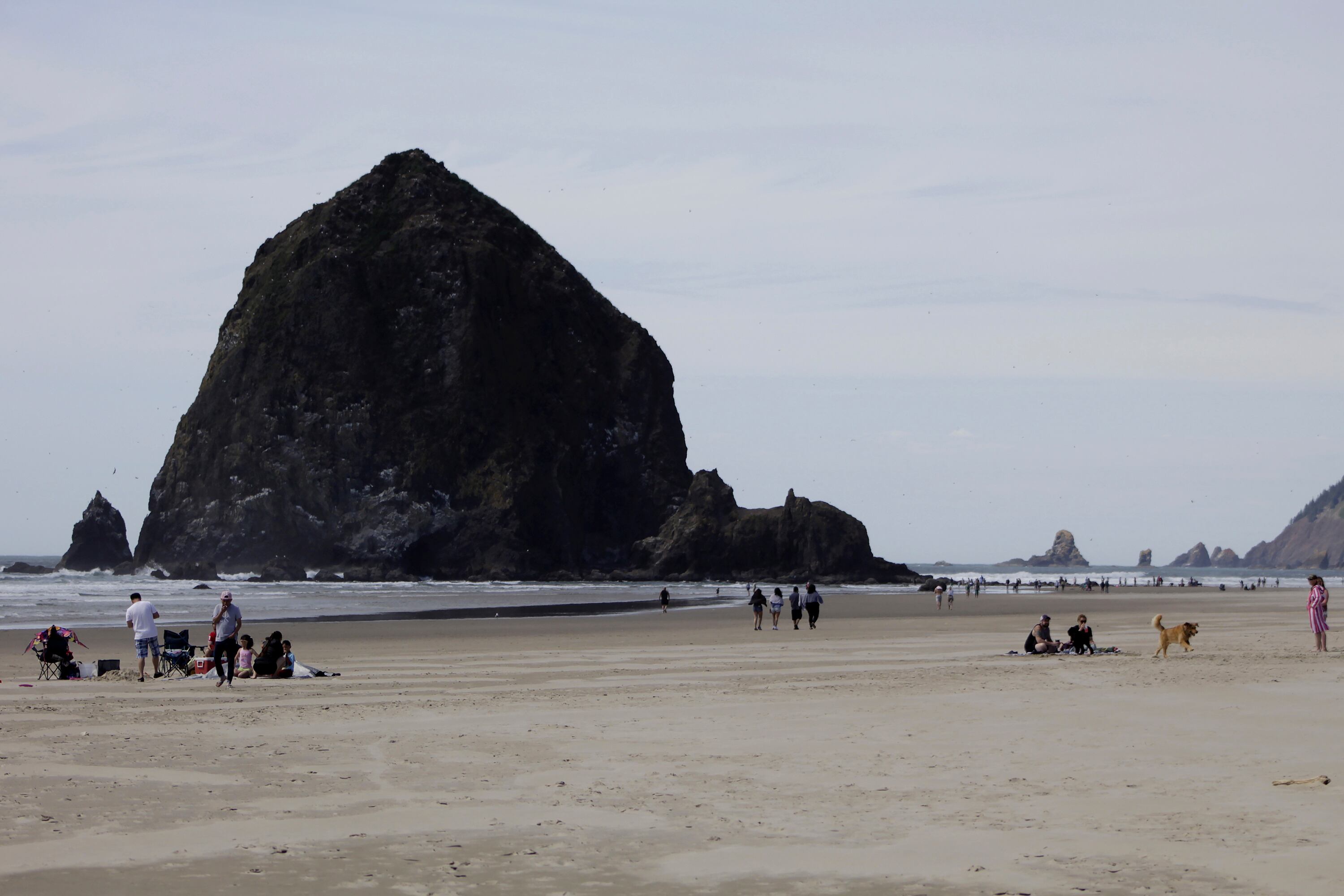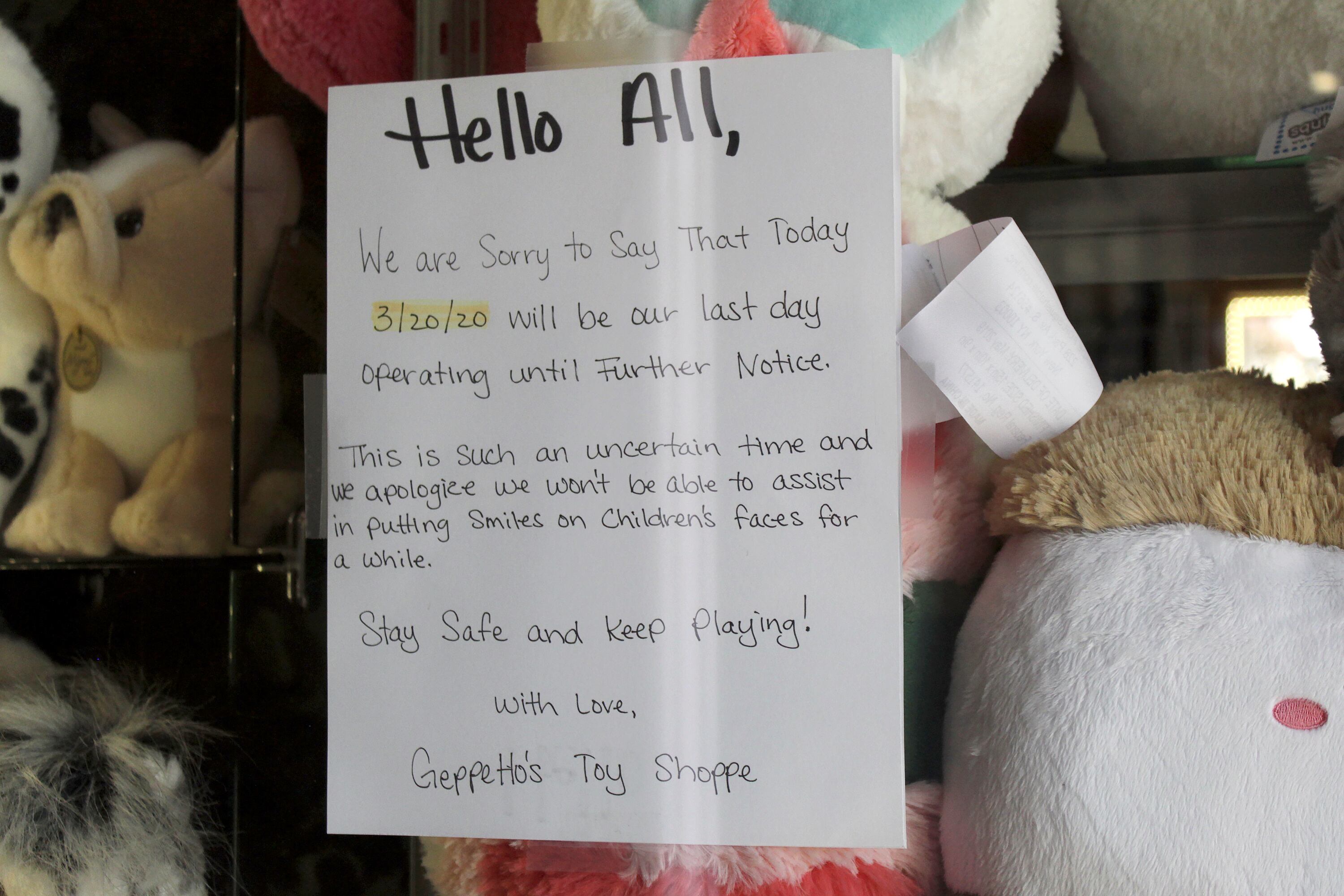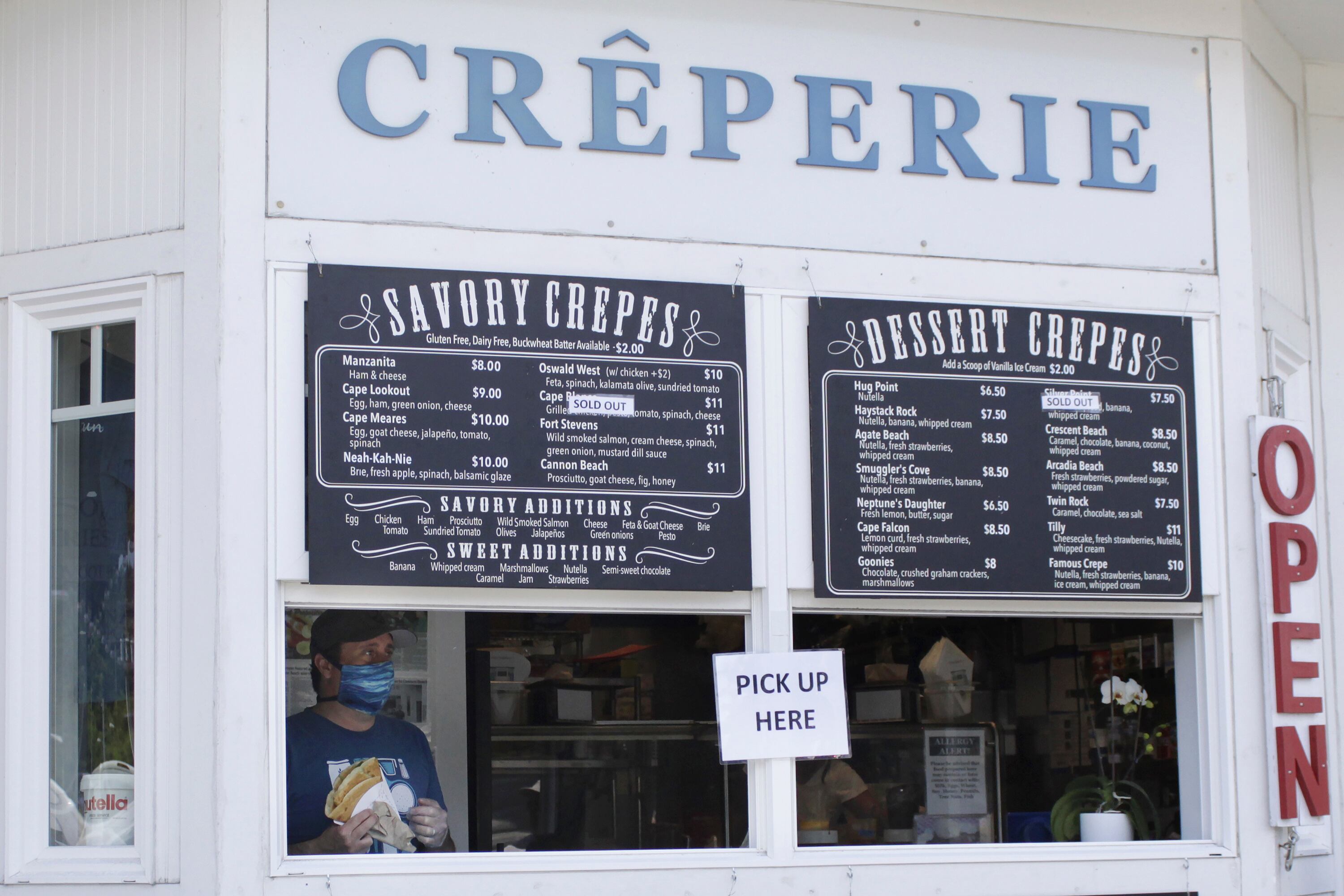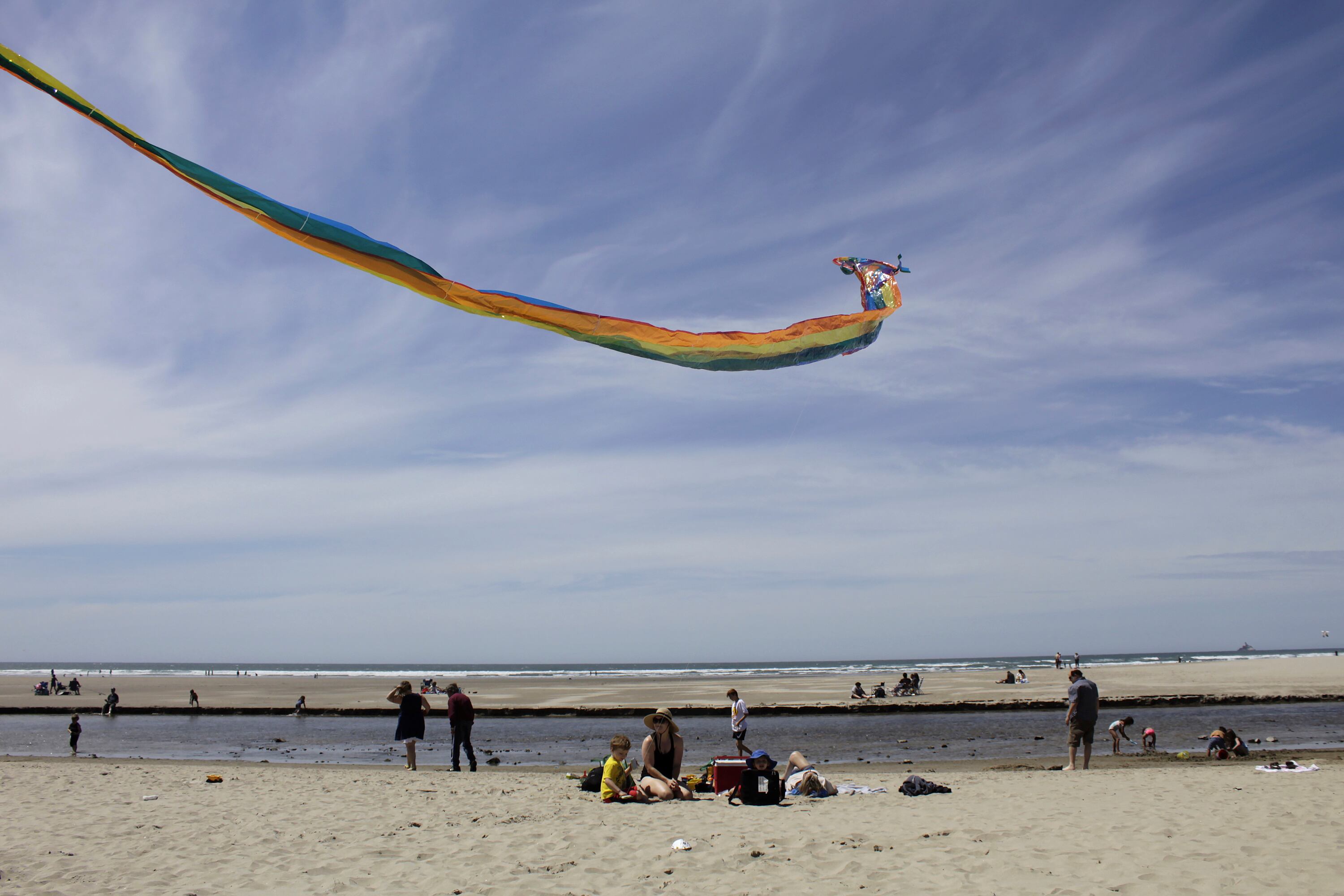By Gillian Flaccus
As the coronavirus raced across America, this quaint seaside town did what would normally be unthinkable for a tourist destination.
Spooked by a deluge of visitors, the tiny Oregon community shooed people from its expansive beaches and shut down hundreds of hotels and vacation rentals overnight. Signs went up announcing that the vacation getaway 80 miles (129 kilometers) from Portland known for towering coastal rock formations was closed to tourists — no exceptions.
“It was unprecedented,” said Patrick Nofield, whose hospitality company Escape Lodging owns four hotels in Cannon Beach and abruptly laid off more than 400 employees in March. “We really went into survival mode.”
Now, with summer looming and coronavirus restrictions lifting, the choices facing Cannon Beach are emblematic of those confronting thousands of other small, tourist-dependent towns nationwide that are struggling to balance their residents' fears of contagion with economic survival. It's a make-or-break summer in these vacation spots — and the future is still terrifyingly unclear.
“How do you regulate people inundating your town on a day-to-day basis?” Nofield said. “One of the great things about Oregon is our beaches are free to all. We don’t want to take away people’s rights, but how do we manage it and still stay safe? That’s the thing.”
Answering that question is especially critical for small, rural towns like Cannon Beach, which are too far from major cities to benefit from their economies and remote enough that they worry about medical care should infections spike again. Far-flung communities that are gateways to national parks or fly fishing or hiking destinations have similar concerns, said Carl Winston, director of the Payne School of Hospitality and Tourism at San Diego State University.
“How do you diversify if you are Cannon Beach and all the others? There's not a lot of possibility there,” said Winston, who has watched his students' summer internships in resort towns dry up. “The question is, how much is survivable for them?"
Clatsop County, which is home to Cannon Beach and other small coastal towns, has just 45 confirmed cases of the coronavirus so far. But Portland — Oregon’s largest city — is less than two hours away and saw its hospitals overwhelmed with COVID-19 patients during the pandemic's peak. Hundreds of tourists also come to Cannon Beach from Seattle, where the virus first took hold in the U.S.

The nation has reported more than 106,000 coronavirus deaths, nearly a third of the worldwide total of over 378,000, according to a tally kept by Johns Hopkins University.
The annual influx of visitors is a concern for this tight-knit community, best known for the iconic coastal formation Haystack Rock and where a large percentage of its 1,700 year-round residents are older and more susceptible to COVID-19. That was one of the factors influencing the decision to shut down the town so abruptly after huge crowds swarmed its beaches on a warm March weekend, said Jim Paino, executive director of the Cannon Beach Chamber of Commerce.
The City Council held an emergency meeting and took immediate action, making headlines across the region a day before Gov. Kate Brown issued her own statewide stay-at-home order on March 23.

“The big fear is the people who don’t respect the safety measures. That was probably the biggest fear in our community at the moment — and it is still," Paino said. But "the businesses are what drive our economy, and if we lose too many, we’re going to lose the character of Cannon Beach and the reason everybody loves coming here.”
For two months, the town was a ghost of itself, a tableau of desolate streets and shuttered businesses. The closure forced at least four businesses to shut their doors for good, and hundreds of workers — almost all locals — were laid off. Cannon Beach relies on a hotel lodging tax for nearly three-quarters of its general fund and stands to lose hundreds of thousands to the pandemic.
The town reopened on May 15 and its hotels took bookings 10 days later, and on a recent warm, sunny day, Cannon Beach appeared to be coming back to life.

American flags hung on almost every street corner, families flew kites on the beach, people lingered over lunch at a local brewpub, and a line formed at a hamburger shop. Popular businesses like Bruce's Candy Kitchen were bustling again, with customers watching through a glass window as the owner's son-in-law pulled saltwater taffy on a giant wheel. Tourists filled the sidewalks, sometimes making social distancing difficult.
Yuri Vidal is celebrating his restaurant Crepe Neptune's ninth summer season, and he needed to reopen to survive. But he said he’s also afraid of bringing the coronavirus home to his family.

“Right now, we’re just gonna work as hard as we can,” Vidal said. “I have a feeling that’s what everybody’s going to be doing to catch up from missing spring break — and the unknown is that it all could shut down again.”
But tourists do not always equal customers, another hard lesson Cannon Beach is learning.

Gwen Partlow drove from Portland for a few hours of respite and kite-flying with her sister, parents, and two sons, ages 5 and 2. The family packed their own picnic and headed straight for the sand, making sure to stay 6 feet (2 meters) from others.
The only money they would spend would be on ice cream, she said.
“I heard they started opening, but we didn’t come with the intention of going to any businesses," Partlow said. “We’re hoping to just stay outside.”











